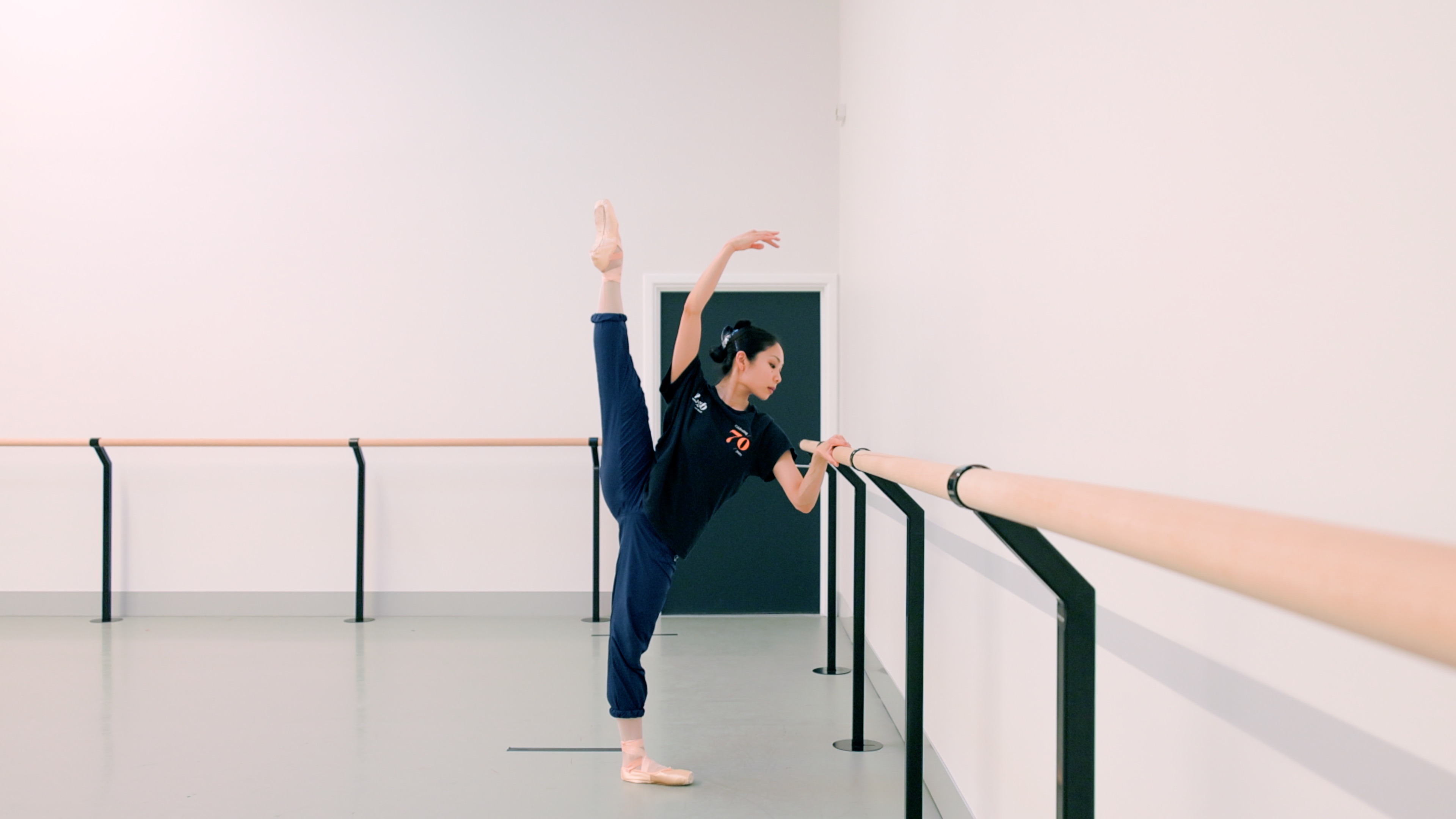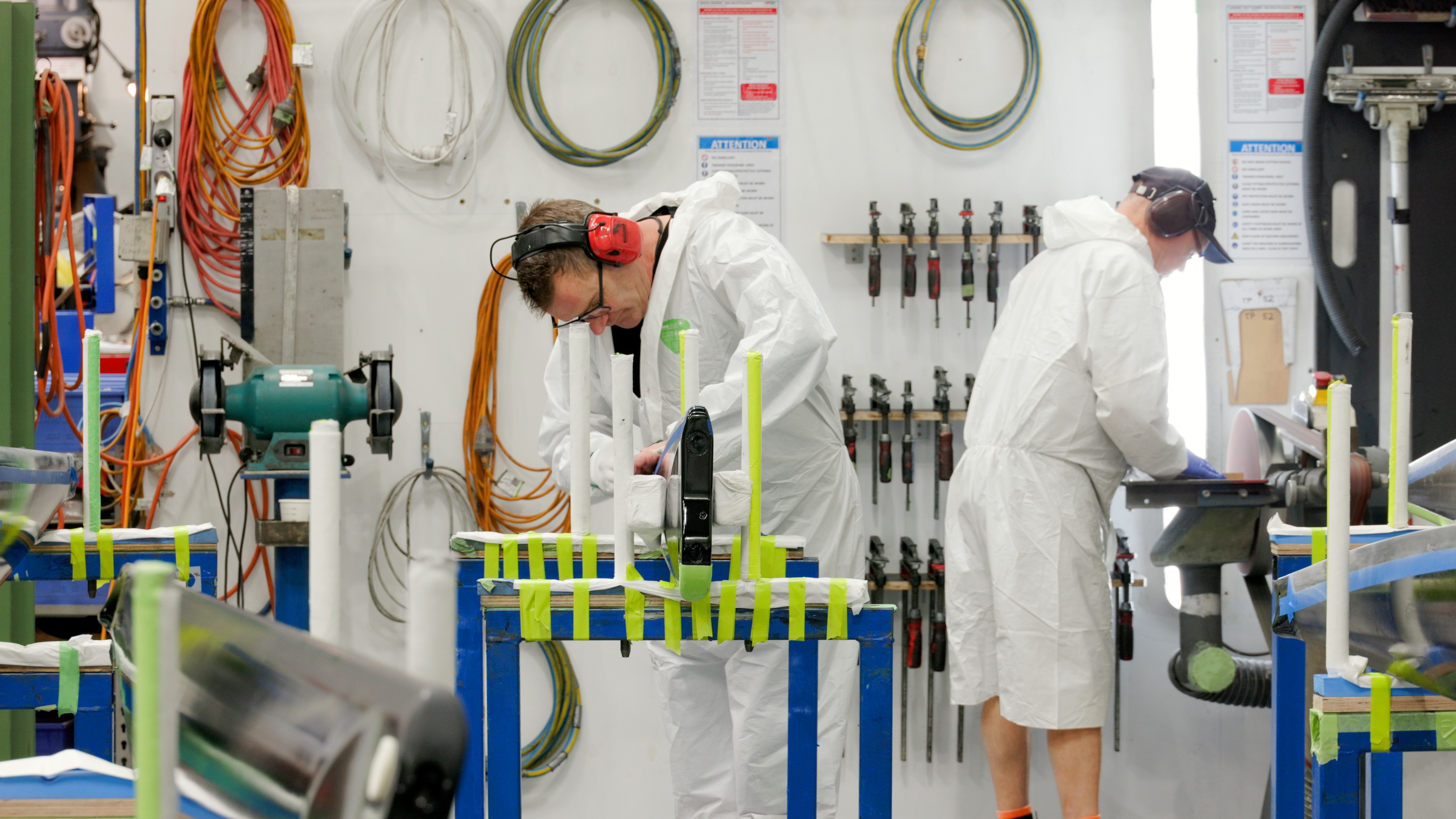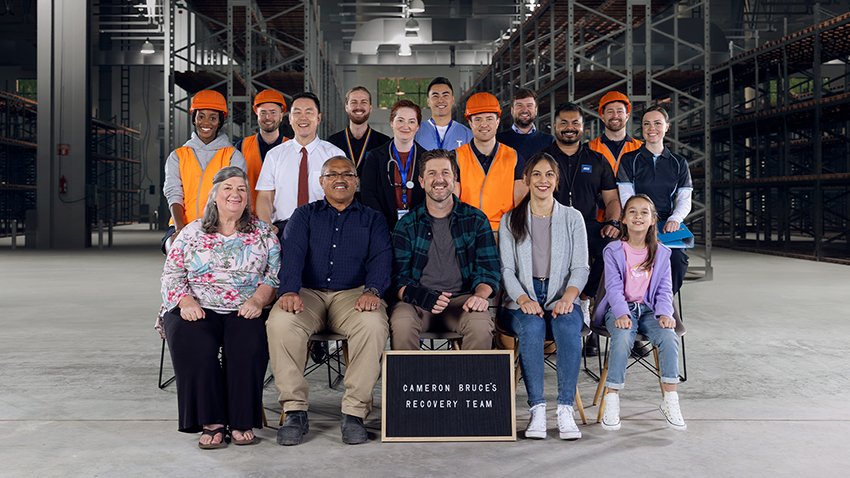Your recovery at work guide
Recovering at work after an injury can help people get better, sooner. Most people with non-complex injuries, like a sprain or a strain, can recover safely at work. You might need to make some temporary adjustments.
Here's your guide to the recovery and support available to help you get back to work.
On this page
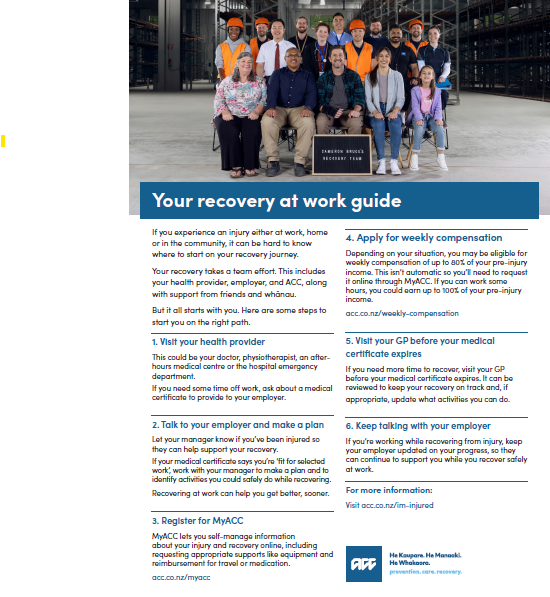
Download: Your recovery at work guide
Your recovery takes a team effort. This includes your health provider, employer, and ACC, along with support from friends and whānau.
Download and use this guide which takes you through the steps to start you on the right path.
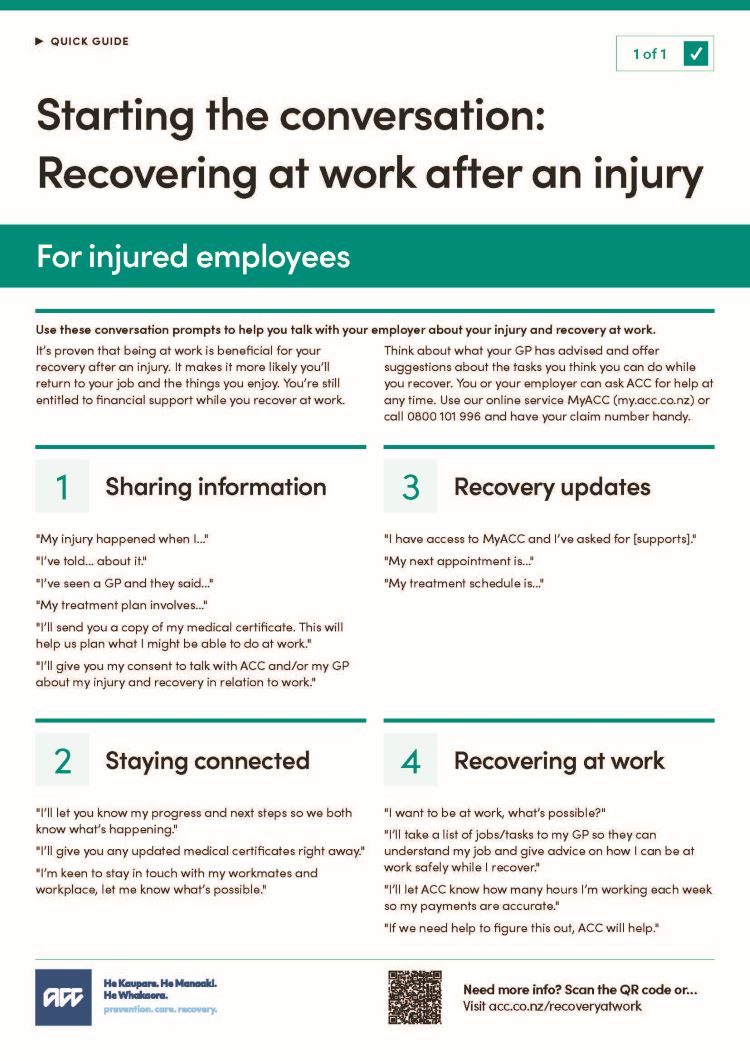
Download: Guide to help you talk with your employer
Do you need time off work after an injury and not sure what to do next? Talk to your employer about your injury and what your health provider has advised.
Download and use this handy conversation guide. It gives ideas on what to say to your employer and how you can work together while you recover.
Start your recovery journey
Recovery at work takes a team effort. Your employer, doctor, other health professionals and ACC all have a role to play in your recovery. Sharing what support you need will mean others can play their part in helping you recover.
To safely recover at work you might need to make some temporary adjustments, like doing slightly different duties than your normal job, or doing fewer hours. It could also mean working with modifications or in a different environment.
-
Visit your health provider to get treatment
This could be at your doctor, physiotherapist, an after hours medical centre or the hospital emergency department.
Learn what to do if you're injured -
Start the conversation with your employer
Use the conversation prompts in this handy quick guide to help you talk with your employer about your injury and recovery at work. We may notify your employer directly if you have a claim for an injury that happened at work.
Conversation guide for injured employees -
Register for MyACC
MyACC lets you manage your injury, support, and recovery online. It allows you to get the help you need from us quickly and easily.
Learn more and register for MyACC -
Apply for weekly compensation
You could earn up to 100% of your pre-injury income if you work while you recover, but that's not automatic - you’ll need to get set up for it online with MyACC.
Learn more and apply for weekly compensation -
Visit your GP before your medical certificate expires
This ensures any weekly compensation you are being paid continues. If you're set up for weekly compensation, you'll be able to upload new medical certificates yourself using MyACC. -
Keep the conversation open with your employer
It’s important you keep your employer informed of your injury and situation so that they can safely support your recovery at work. Your employer may be able to view work-related claim information using our MyACC for Business platform, like details on your medical certificate showing when you might be able to return to work.
Learn more about the role your employer, health provider and ACC play in your recovery
Watch: How to recover at work
Video transcript for How to recover at work
Text appears on a blue background.
‘How to recover at work’
We see Cameron sitting down with his hand and wrist in a black brace. He’s flexing his hand to check how it’s healing.
Narrator: If you’re injured and can’t work, that’s not ideal.
The camera zooms out and we can see that Cameron is in a large warehouse with a row of five chairs and a row of six stools behind them. His employer, Rua, walks in from the left and greets him with a fist pump and hug. He places a sign at his feet that says ‘Cameron Bruce’s Recovery Team’.
Narrator: But if you’re able to take on some light duties, or even help out part-time, there are real benefits in recovering at work.
Text appears:
Recovery at work helps you
- Return to your usual role
- Look after your physical and mental wellbeing.
Narrator: You’re much more likely to go back to your old role, and it’s better for your physical and mental wellbeing.
We see workmates with high-vis vests, healthcare providers, and whānau join the scene, greet Cameron and take a seat around him.
Narrator: But it takes a team and there’s a few steps you’ll need to go through first.
Text appears:
Get a medical certificate
Narrator: You’ll need to see a doctor or nurse practitioner for a medical certificate. This will give you and your employer an idea of what tasks you can take on.
Text appears:
Have a kōrero with your employer and make a recovery plan together.
Narrator: Then you can arrange a kōrero with your employer and make a recovery plan together. There’s more about how to do this on our website.
Text appears:
Register for MyACC to:
- apply for weekly compensation
- upload documents
- receive help with travel and equipment.
Narrator: Next, sign up to MyACC. There you can apply for weekly compensation and keep an eye on everything you’ll need to know, as well as upload any documents we may require. We may also be able to help with some travel costs and any special equipment you might need.
We see Cameron’s team taking their place around him, ready for their team photo. A photographer takes the team photo.
There’s a camera flash and then we see the team photo presented in a blue photo frame. Then we see the team getting ready to get back to work.
Narrator: And then you can concentrate on getting better and back to your usual mahi. Keep in touch with your employer and use the resources on our website, because teamwork makes recovery work.
Text appears:
Kia mahitahi, kia whakaora
Teamwork makes recovery work
We see the ACC logo.
Why recover at work
Evidence shows recovering at work after an injury helps people get better, sooner. With the right team in place to support you it also makes it more likely you'll return to your job and the things you enjoy outside of work.
Recovering at work can:
- improve physical and mental wellbeing by staying connected to your workplace
- increase independence and confidence
- lead to shorter recovery times
- mean earning up to 100% of your pre-injury income.
Last published: 24 September 2024

